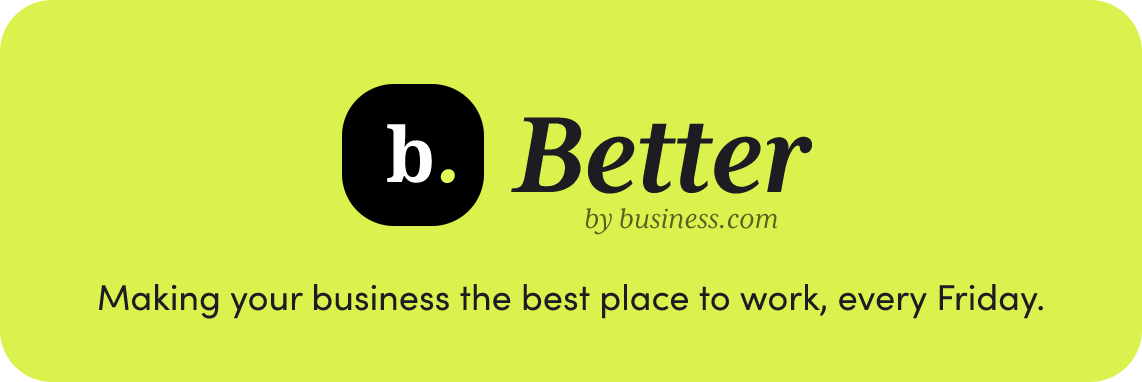As we continue to take some much-needed time away from the office this holiday break, it’s worth asking: Would you and your employees spend more time there if it were Instagrammable?
That might sound dubious to some of us, but it’s a legit question companies are asking. Instead of RTO-or-else threats, for example, cereal brand Magic Spoon is luring workers back with “blueberry muffin” and “maple waffle”-themed conference rooms.”Be a Froot Loop in a world of Cheerios,” Greg Sewitz, a Magic Spoon co-founder, told The New York Times. “We wanted the office to underline that.”
Workers snapping nonstop selfies against Pinterest-friendly interior design might be a small price to pay for finally having them all under one roof.
|
|
|
Lessons for 2024 from the Global Innovation Index
|
This year is just about to be history. So, who won it, aside from Taylor Swift?
That would be Switzerland, according to the Global Innovation Index. The GII measures 132 global economies from the prior year on 80 various metrics such as infrastructure, education, human capital, creative output, knowledge creation, and more.
Switzerland took the top for the 13th year running, while the U.S. fell to third place behind Sweden. These European countries are succeeding way beyond the strength of their financial services sectors; they’re thriving due to more R&D investments, business-favorable taxation, well-supported transportation, and robust internet access.
But what might that mean for U.S.-based small biz, aside from a couple of hints about which countries make the best outsourcing partners?
You might not be able to uproot your company to Sweden (or learn how to pronounce “realisationsvinstbeskattning”), but don’t underestimate how much your business’s locality can impact its success. Many factors championed by the GII and a strong talent pool can be found domestically; they’re exactly why so many entrepreneurs have taken their businesses to Miami, Dallas and Raleigh. Those cities have an attractive mix of laissez-faire tax policies and highly employable college grads.
The full GII report, which clocks in at 250 pages, warns that innovation-related investment is down due to high interest rates and geopolitical conflict, but that’s in comparison to the boom times of recent years. Unicorns aren’t dying but they’re in a weird place right now; VC deals increased overall but the overall value of VC deals has declined by 40%.
The U.S. is still home to more VC funding than any other country on earth, however, so watch out for us in 2024, Switzerland.
|
|
|
3 New Year’s Resolutions to Fight Burnout
|
|
|
Dr. Ben Baran is an associate professor at Cleveland State University and co-founder of Elevating What Works.
Being a leader is hard. It can come with long hours, rushing between tasks, and a nonstop sense of responsibility. But it’s also important to recharge so you don’t burn out.
So, when you leave work and have some downtime in the evening, what’s the best way to recharge?
What you need is “leader recovery.” A recent study analyzed ways in which a leader might spend their after-work hours. The approach that worked the best involved detaching yourself completely from your job, both physically and mentally, instead of continuing to think about it. Based upon that, here are a few practical steps:
- Quiet your internal monologue. Listen to music, catch up with a friend, or unwind with a movie or show (but don’t binge too late — you need your sleep, too).
- Get a hobby. This could include exercise, crafts, mentoring, or other pastimes that focus your attention on something worthwhile yet unrelated to your work.
- Create boundaries. In the evening, limit your work-related email and phone usage as much as possible. If you work from home during the daytime, consider changing your clothes, going for a walk, or doing something else physical that helps you separate your workday from your evening.
It may take some intentional effort and practice to disengage, but this approach can help you show up the next day with a renewed sense of yourself as a leader, equipping you with the confidence and authority you need to make a difference. Leadership across a career is a marathon, not a sprint, so be smart about how you refresh yourself along the way.
|
|
|
On Dec. 29 in Business History:
|
- 1862: A wooden prototype of the modern bowling ball was invented on this day, according to legend (the source can’t be pinned down).
- 1891: Thomas Edison was granted a patent for an electric-signal transmission device that helped sailors communicate at night and through fog.
- 1913: The Polyscope Company released The Unwelcome Throne, the first serial motion picture.
- 1954: The Dow Jones Industrial Average breached the 400 mark for the first time since the Great Depression started a quarter-century earlier.
|
|
|
Written by Rachel Brodsky, Dan Ketchum, and Ali Saleh.
|
|
|
|






.png)